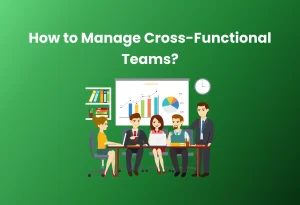
When you hear “blockchain,” your mind probably jumps to cryptocurrencies and wild price swings. But here’s the deal: the real power of this technology isn’t just in creating digital money. It’s in building unbreakable trust. And for small business owners drowning in receipts, invoices, and the constant fear of a messy audit, that trust is everything.
Think of blockchain as a digital ledger, but one that’s shared across a network of computers. Once a transaction is recorded, it’s sealed in a “block” and chained to the one before it. Tampering with it? Well, that would require altering every subsequent block and getting the entire network to agree—a near-impossible feat. It’s less like a paper ledger and more like carving your financial history into stone, one that everyone can see but no one can secretly change.
The Small Business Accounting Headache—And a Potential Cure
Let’s be honest. For a small business, accounting is often a necessary evil. It’s time-consuming, prone to human error, and frankly, a bit of a black box for anyone who isn’t a numbers person. You’ve got manual data entry, chasing down invoice approvals, and that sinking feeling when you can’t quite reconcile a payment. It’s a drain on your most precious resource: your time.
Blockchain applications in small business accounting aim to tackle these very pain points. It’s not about replacing your accountant—it’s about giving you and them a cleaner, more reliable set of books to work with.
Practical Blockchain Uses for Your Books
So, how does this look in practice? Let’s dive into a few specific areas where blockchain is making waves.
1. Smart Contracts for Flawless Invoicing and Payments
This is a game-changer. A smart contract is a self-executing agreement with the terms written directly into code. Imagine this: you complete a job for a client. The moment they sign off on the work, the smart contract automatically triggers the invoice and releases the payment from their digital wallet to yours. No more waiting 30, 60, or 90 days. The entire process is automated, transparent, and trustless—meaning you don’t have to trust the other party to pay, because the code ensures they do.
2. An Immutable Audit Trail You Can Actually Trust
Audits are stressful because you’re trying to prove your history is accurate. With blockchain accounting software, every single transaction is time-stamped, cryptographically signed, and permanently recorded. It creates a verifiable and unchangeable chain of custody for every dollar. An auditor wouldn’t need to sift through shoeboxes of receipts; they could verify your entire financial history on the chain in a fraction of the time. The value of an immutable audit trail for small business compliance can’t be overstated.
3. Crystal-Clear Supply Chain & Provenance Tracking
If your business deals with physical goods, blockchain is your new best friend. You can track a product from raw material to the customer’s hands. Each transfer of ownership, each quality check, each customs clearance—it’s all recorded. This is huge for businesses selling artisanal coffee, sustainable clothing, or high-end components. You can prove authenticity and ethical sourcing to your customers, which is a powerful marketing tool in itself.
Weighing the Ledger: The Pros and Cons
It sounds almost too good to be true, right? Well, like any new technology, it comes with its own set of challenges. Let’s break it down.
| The Upside | The Downside (For Now) |
| Reduced Fraud: Tamper-proof records make cooking the books virtually impossible. | Learning Curve: It’s a new way of thinking about data and requires some education. |
| Increased Efficiency: Automates manual reconciliation and speeds up transactions. | Integration Hurdles: Getting existing software to talk to a blockchain can be tricky. |
| Enhanced Transparency: All parties see the same, single version of the truth. | Regulatory Gray Areas: Laws are still catching up with the technology. |
| Lower Costs: Cuts out intermediaries and reduces administrative overhead over time. | Initial Cost: Implementing new systems always has an upfront cost. |
Getting Started: Is Your Business Ready?
You don’t need to rebuild your entire operation tomorrow. The shift to blockchain for small business finance is happening gradually. Here’s a sensible way to approach it.
- Educate Yourself and Your Team. Start with the basics. Understand what blockchain is—and what it isn’t. Demystify it.
- Identify a Single Pain Point. Don’t boil the ocean. Maybe you start by using a blockchain-based system just for your B2B invoicing to improve cash flow. Or for tracking high-value inventory.
- Talk to Your Accountant. Find a financial professional who is at least blockchain-curious. Their insight will be invaluable in navigating this new terrain.
- Pilot a Solution. Look for emerging SaaS platforms that are integrating blockchain features. Test one in a non-critical area of your business first.
The goal isn’t a wholesale swap. It’s strategic augmentation.
The Bottom Line: A New Foundation for Trust
Blockchain technology in accounting isn’t just a fancy new tool. It’s a fundamental shift towards a system built on verifiable integrity. It hands control back to the small business owner, offering a level of clarity and security that traditional bookkeeping simply can’t match.
Sure, there are hurdles. But the direction of travel is clear. We’re moving towards a world where your financial records are not just a reflection of your business, but an unassailable part of its identity. The question isn’t really if this will become standard practice, but how soon you’ll be ready to embrace the transparency.







